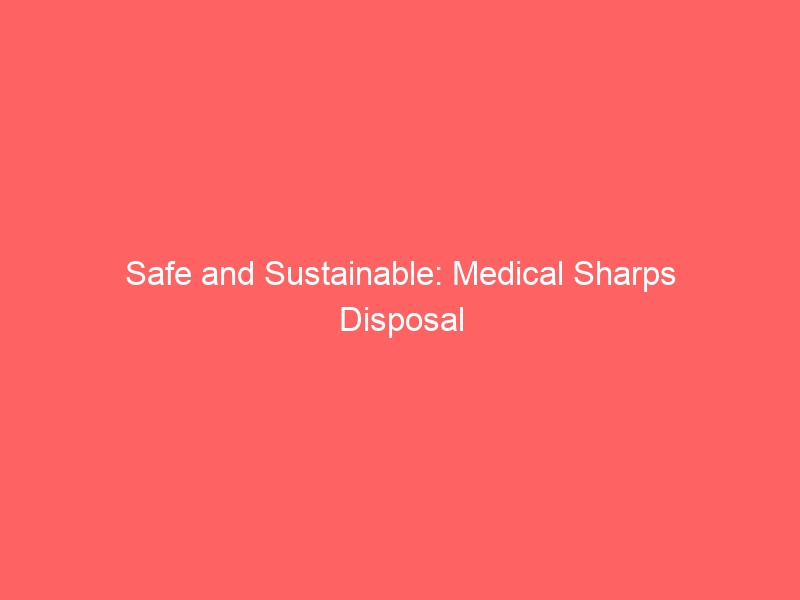Medical sharps, such as needles, syringes, and lancets, are essential tools in the healthcare sector for diagnosis, treatment, and management of various medical conditions. However, improper disposal of these sharps can pose serious health and environmental risks. In Kenya, the inadequate disposal of medical sharps has become a pressing concern, leading to the need for safe and sustainable medical sharps disposal services.
The improper disposal of medical sharps can result in the spread of infections and injuries among healthcare workers, waste management personnel, and the general public. In addition, if not properly disposed of, medical sharps can end up in landfills and open dumping sites, where they can pose a threat to the environment and wildlife.
To address these concerns, there is an increasing need for safe and sustainable medical sharps disposal services in Kenya. These services are aimed at ensuring that medical sharps are properly collected, stored, transported, treated, and disposed of in a manner that minimizes the risk of infections and injuries, as well as the environmental impact.
One of the key elements of safe and sustainable medical sharps disposal services is the implementation of proper collection and storage practices. Healthcare facilities and practitioners must ensure that used medical sharps are collected in puncture-resistant containers and stored in secure and labeled areas to prevent accidental injuries and contamination.
Furthermore, the transportation of medical sharps from healthcare facilities to treatment and disposal facilities should be carried out in accordance with the highest safety standards. This involves using specialized vehicles and trained personnel to ensure that the risk of spillage and exposure is minimized during transit.
Treatment and disposal facilities for medical sharps should also adhere to strict regulations and guidelines to ensure that these hazardous waste materials are handled and treated in a manner that minimizes their impact on the environment and public health. This may involve the use of advanced technologies such as autoclaving or high-temperature incineration to sterilize and neutralize the sharps before their ultimate disposal.
It is also crucial for medical sharps disposal services to prioritize sustainability by incorporating environmentally friendly practices into their operations. This may include the use of energy-efficient equipment, waste-to-energy technologies, and the promotion of recycling and reusing as much of the waste materials as possible.
To ensure the effectiveness and reliability of these services, it is essential for the government to implement and enforce strict regulations and standards for the safe and sustainable disposal of medical sharps. This may involve the licensing and monitoring of disposal facilities, as well as the implementation of penalties for non-compliance with the regulations.
In conclusion, safe and sustainable medical sharps disposal services are crucial in addressing the health and environmental risks associated with the improper disposal of medical sharps in Kenya. By implementing proper collection, storage, transportation, treatment, and disposal practices, these services can help to protect the public and the environment from the harmful effects of medical sharps waste. Through collaboration between healthcare facilities, waste management companies, and government authorities, it is possible to establish a safe and sustainable system for the management of medical sharps waste in Kenya.






